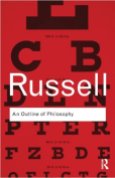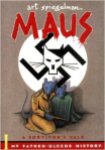Turing, History and Philosophy @ the BYOB Party in June (Part 3)
Towards the end of the BYOB Party (read Part 1 and 2 if you haven’t already), things started getting very serious indeed, what with mathematics, history and philosophy on the cards.

Nilesh Trivedi, an engineer specializing in web and mobile software, got An Outline of Philosophy by Bertrand Russell, which he highly recommends for its topical approach. “Although there has been a lot of path breaking development in cognitive sciences, this book is a good starting point. It can get dry in parts, but Russell is the clearest thinker who put his thoughts on paper, and a courageous writer too.”
It must have been the idea of Russell, but suddenly the BYOB party was a buzz with a flurry of mathematics and its personification- Alan Turing. Incidentally, Turing was also a pioneer in the field of Theoretical Biology, Aditya Sengupta, the biologist, reminded us.
Sameer Shisodia, Founder and CEO at Linger Leisure, was bowled over by the extremely fast paced history book called India – A History by John Keay. “It doesn’t feel like a history one bit,” he said. Abhaya incidentally picked up a Keay novel called To Cherish and Conserve: The Early Years of Archaeological Survey of India. John Keay brought them to the conclusion that history was more like putting pieces of a puzzle together. “There’s a lot of guesswork when it comes to creating history. You could be off by a thousand years, but that’s the beauty of it,” said Sameer.
There’s no verity in the past- the maps are mostly untrue. Even Kings had no exact approach about where their empires ended. There was genereal consensus about how history lessons in school never sparked this kind of excitement. “Who cares what year King so and so was born?” asked Nilesh.
Maybe a book called Guns, Germs and Steel is what every history hater should read, Abhaya said. Like Napolean’s Buttons that Sudharsan Narayanan talked about, this book too deals with how certain factors changed the course of events. “Environmental determinism takes away a lot of the blame of what happened in the name of colonialism, even then this book is charmingly written.”
The younger particiapants talked about other media– R. Sundararajan talked about a 26 episode documentary series called ‘The World at War’ based on the Second World War.
Srishti talked about a graphic novel called MAUS by Art Spiegelman. Only an illustrator can make sense out of the incomprehensible and Spiegelman does this by turning the Jews into Mice and the Nazis into cats. Conversation went around to what the ordinary German made of the entire scenario. “In all likelihood, war is not what people want; they just want a good harvest and a safe place for their babies,” Jaya said as she reflected on the war strewn atmosphere of G.R.R. Martin’s A Game of Thrones. “The highlight of MAUS for me was when an African American faced racism by the same Jew who suffered in the Holocaust,” Srishti said. Spiegelman says so much in this book, it is worth a read.
It was not just books in English that were part of the conversation. Abhaya talked about a Hindi book calledAapki Bunti by Mannu Bhandari, acclaimed writer and wife of the famous Hindi writer Rajendra Yadav. It’s about the kind of impact a divorce could have on a child. “There are so many menaingful books in Hindi but the question really is where do we find them?” Shalini asked.
A few book stores were mentioned, but strangely enough there are not too many venues to buy Indian Language books from. A lot has to do with the mentality of publishers and the complete absence of marketing. Support from publishers is rare and except for a few instances of authors who are enterprising enough to promote their books on media like Whatsapp, there seems to be no vision. The general consensus is that people want to read books in all languages; however readers are also the problem. Here’s an instance of reader apathy that was shared. A writer once put up a chapter of his book on his blog. He was congratulated by his readers but all of them wanted a free copy. That’s the plight of the author, and so the publishing industry suffers as does the writer.
On the whole, the BYOB Party was a thought provoking exercise and it’s something that should be hosted in more and more places so that the love of books and cake and conversation overtakes everything else in the world!
Join us the next time…



